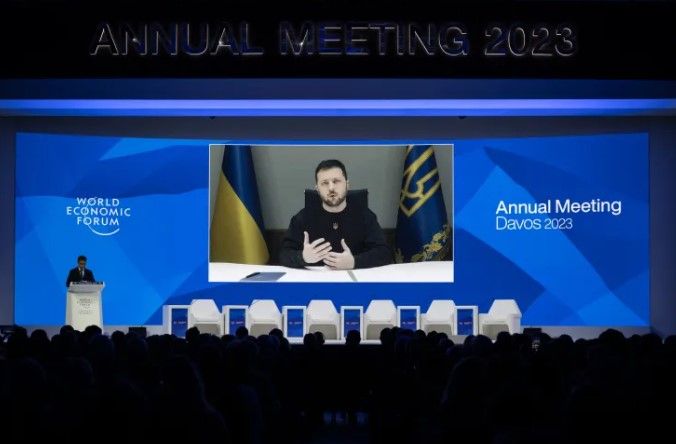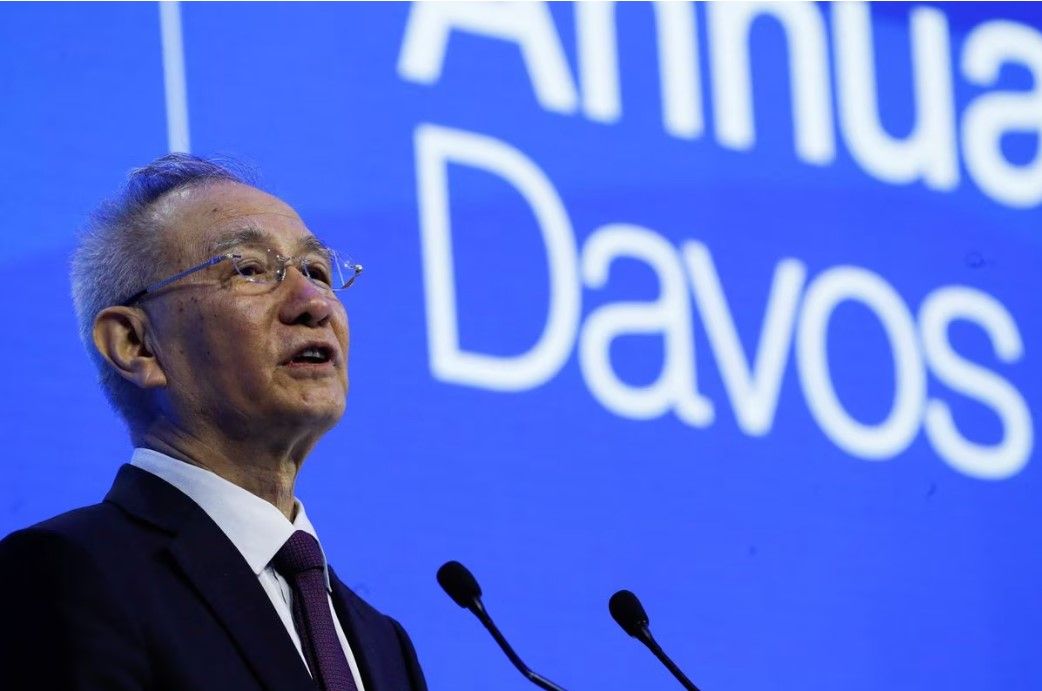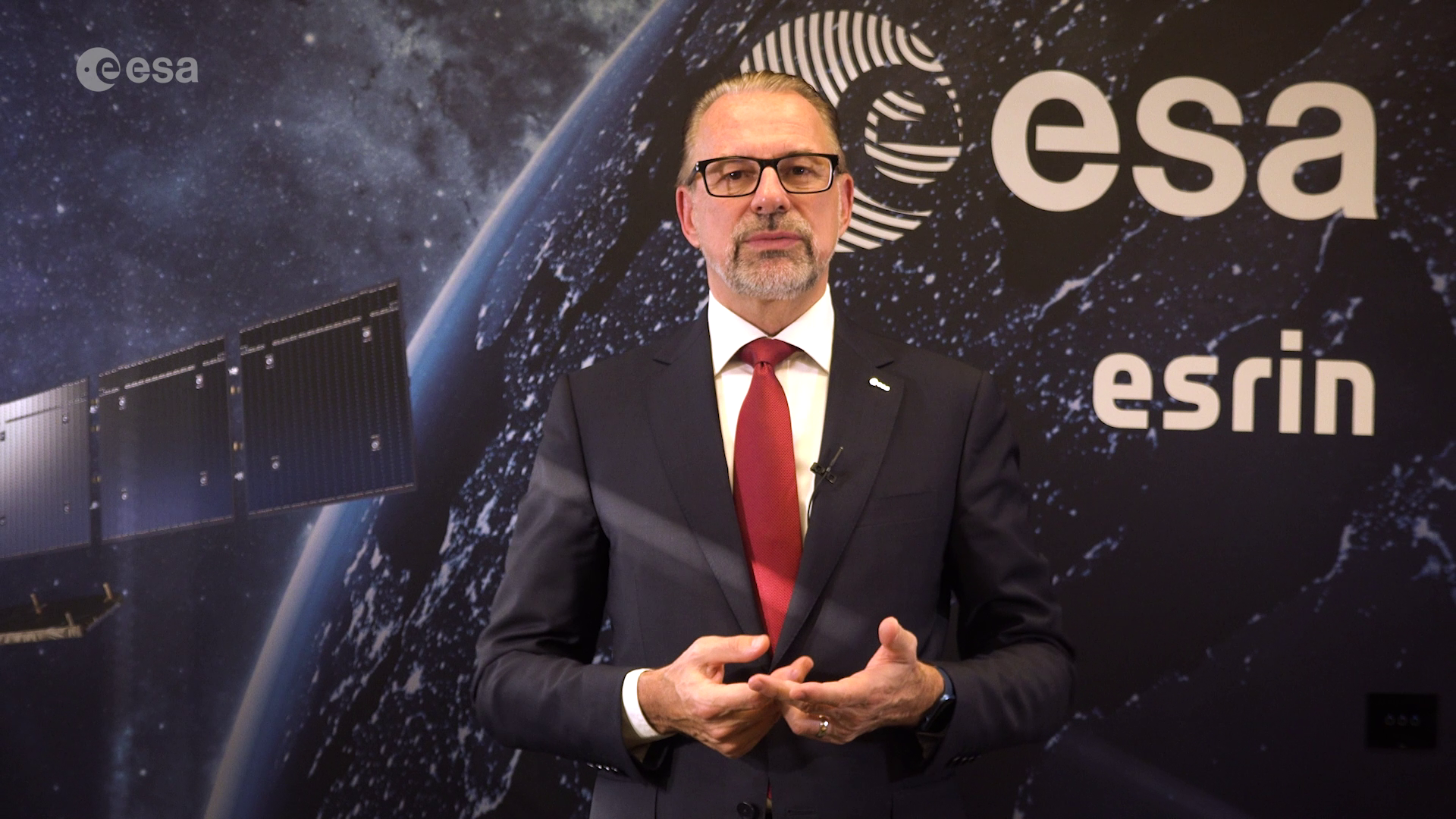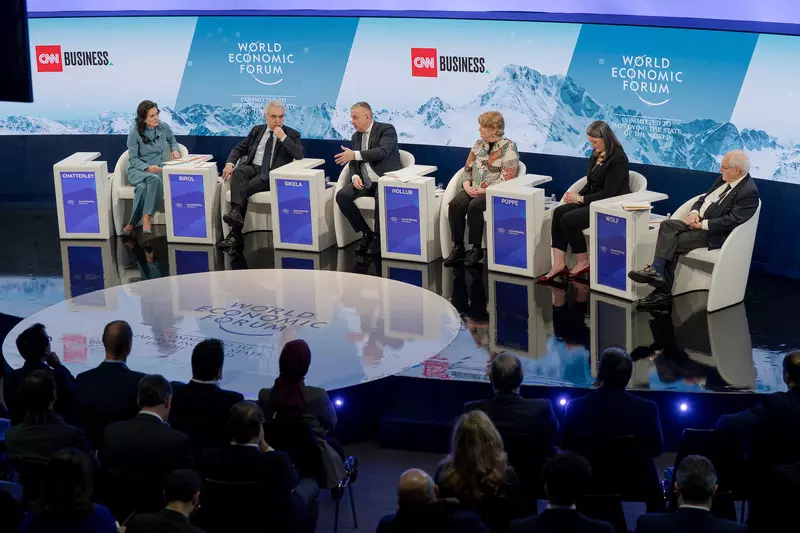DAVOS 2023 Roundup – Takeaways for Defence from the World Economic Forum
)
World-leaders and industry titans gathered last week at the annual World Economic Forum in Davos to discuss the issues effecting the global economy. Over-arching themes included: gloomy economic data, geopolitical rivalries and the de-globalising impact of protectionism, technology aiding collaboration and, Ukraine’s ongoing war effort, all impacting Defence.
#1 NATO Expansion and Defending Ukraine

(Image source: World Economic Forum 2023)
11 months on from the start of the Ukraine war, there is no sign of Russia rescinding its claims on Ukrainian territory. Consequently Ukraine is desperately calling for more western weapons, supplies and tanks to defend its sovereignty. President Volodymyr Zelenskyy addressed the forum on Wednesday 18th, calling for speedier deliverance of aid and support, only hours after it was reported that Ukraine’s interior minister had been killed.
Policy-makers will have to help procurement agencies replenish war stocks donated to Ukraine in what is proving to be a particular opportunity for suppliers of much-desired military assets. NATO’s Jens Stoltenberg joined calls for more western nations to commit MBTs (Main Battle Tanks) to the Ukrainian cause, following the UK’s decision to send Challenger 2 tanks and pressure growing on Germany’s new Defence minister, Boris Pistorius, to send Leopard 2s. This comes as it has been suggested that the effort to supply Ukraine ‘could generate a foreign military sales boom.’
Another unintended outcome of the war is Finland and Sweden intention to join NATO. The two countries look set to depart from decades of policy which saw the Nordic allies remain outside the military alliance. Finland’s Prime Minister Sanna Marin addressed the forum, asserting Finland’s belief in the security the NATO alliance can offer, claiming that Russia would not have invaded a NATO country. Marin also assured that Finland intends to join NATO simultaneously to Sweden, and not break away to join before Sweden.
#2 US-China Rivalry

(Image source: Reuters/ Arnd Weigmann)
US-China rivalry has been the topic of most of the geo-political headlines coming out of Davos in the past week. The critical supply of chips being securitised by the US and its allies is a move away from reliance on China and a boost to domestic and allied industry. However, some have cautioned against the trend in ally-shoring as a risk of damaging supply chains around the world.
Advancements in AI is another area in which China is excelling and causing discomfort to the west. Speaking at the World Economic Forum, FBI Director Christopher Wray classed China as having the biggest hacking program in the world, and warned that their AI would be used for more harm than good, claims that China dismissed as "groundless attacks" and "malicious smear[s]."
In terms of traditional Defence equipment, tensions between China and Taiwan is prompting allies in the west to accelerate what President Obama once dubbed ‘the pivot to the Indo-Pacific’, as local allies such as Japan, Australia and South Korea arm fast.
Despite the West’s misgivings, now that China has relaxed its zero-COVID policy it has declared it is now open to global collaboration, and warns against “a cold war mentality.”
#3 Space Exploration

(Image source: European Space Agency)
Advances in Space technology and ambitious applications for the future was a big topic at WEF23. This comes as the cost of putting satellites in space has fallen significantly, with a host of entrepreneurs and SMEs now finding the final frontier far more accessible. However, this significant opportunity has the side-effect of filling the atmosphere with an increasing number of man-made objects cluttering our skies. To combat this, the European Space Agency outlined their approach to decluttering the atmosphere, with their zero-debris strategy and determination that all future satellites will have a disposal or return plan in mind before launch. The demand for disposal and/or removal technology created with such a policy is yet an opportunity for innovators, seeking to clean up our planet’s atmosphere.
The space technologies highlighted at Davos broadly fitted into three categories: ways they can benefit life on Earth, ways they can contribute to Net Zero goals and cleaning up Earth’s lower orbit. With their inter-stellar ambitions, WEF speakers forecast that the human race will become an inter-planetary species, with Mars colonisation and long-term space travel very much in the sights of leading organisations.
#4 Energy Transition and Sustainability
(Image source: World Economic Forum 2023)
The global energy crisis prompted business and national leaders from across the world to discuss the transfer from traditional sources of energy to sustainable, renewable sources. The forum agreed that the challenge facing the energy sector today is how to redesign the entire system while maintaining an affordable, resilient supply that's sustainable for the planet. With the war in Ukraine and the resulting energy crises causing a shift away from Russian-supplied energy, other sources and renewables look ever more attractive. Governments are seeking more efficient renewables, more stable supply chains and better integration with national energy infrastructure.
Notably, fossil fuels have been leant on in the transition away from Russian sources with the hope that they will merely constitute a short-term winter boost, prior to their replacement with longer-term, more sustainable sources. At Davos there was excitement for diversified energy solutions such as ESA’s space solar farms, which are currently being tested for feasibility. If successful they will be able to transfer energy back to Earth, without taking up what might otherwise be valuable farmland.
#5 Emerging Technologies

(Image source: World Economic Forum 2023/ Accenture)
This year a variety of emerging technologies have taken the place of crypto currency which topped agendas in 2022. Leaders discussed how emerging technology innovations can enable new problem solving capabilities, especially regarding the key topics of climate change and the energy transition. The metaverse could hail a new era of collaboration, and WEF23 demonstrated its second prototype of its purpose-driven ‘home’ in the metaverse: The Global Collaboration Village.
“This [metaverse] could revolutionize global collaboration”, Klaus Schwab, Chairman, WEF
In Defence, one might expect the meta-verse to enhance collaboration and erode the geographical borders between collaborating teams as they interact in a joint environment. Projects to benefit from this the most will be international projects, such as Tempest (GCAP) and other multinational endeavours.
Other key technologies highlighted at the WEF were Generative AI such as the Microsoft-OpenAI collaboration, sustainability solutions, cyber defences, quantum tech and bio-tech. US tech-titan Microsoft announced its plans for OpenAI, making AI accessible to all, opening up opportunities for innovation.
India in particular could also see a boom in home-grown tech given its rapid roll-out of 5G, with Ericsson AB Borje Ekholm highlighting that India is beating US and Europe in 5G. Ekholm remarked, “India will have the strongest digital infrastructure outside of China and soon, comparable to China…The pace of rollout you see in India is very, very rapid.”
View also:
The big 5 Defence trends for 2023
10 Innovations that made waves in 2022
DISCOVER DEFENCE ENGAGE APPLY FOR A PROFILE DEFENCE CONTRACT DIGEST FOLLOW US ON LINKEDIN


